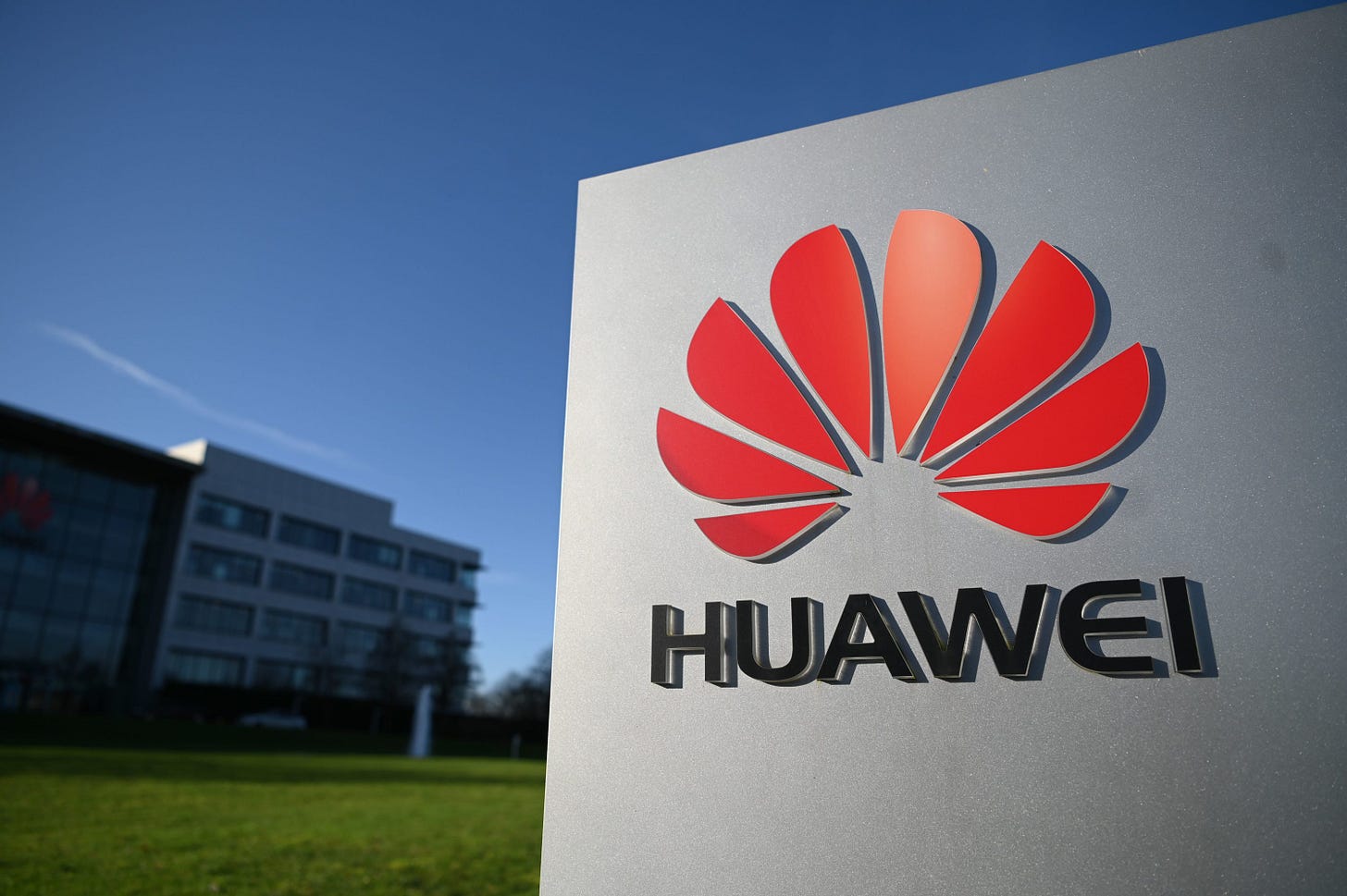Wrong Way on Huawei
The Trump administration failed to block the U.K. from working with the Chinese telecom giant. Here’s why it matters.

In yet another slap in the Trump administration’s face by an ally, late last month Boris Johnson agreed to a permit Chinese tech giant Huawei to build part of the U.K.’s 5G telecommunications network. Commentators who thought that President Trump and Prime Minister Johnson were going to enjoy the kind of close partnership that Reagan and Thatcher, Bush and Blair, and Obama and Cameron had, were proven wrong—especially after Trump’s furious and “apoplectic” phone call with Johnson.
Just days later, Secretary of State Mike Pompeo foolishly cheered the United Kingdom’s official withdrawal from the European Union, which is in character—Pompeo always cheers what the base of the GOP likes. Worse, he promised greater cooperation with the U.K. Unnecessarily kicking allies is bad; cheering them when they have snubbed you in favor of state challenging your supremacy is dumb.
To understand the geopolitical stakes here, let’s step back and talk about what 5G is and why it matters.
5G is the new generation of cellular technology being deployed now around the globe. The previous generation—4G, which rolled out a decade ago—made possible today’s world of smartphones streaming movies, music, maps, and mobile gaming. 5G could be up to 100 times faster. That means it could unleash all manner of creativity and economic activity, some of which we can anticipate—such as augmented reality, immersive virtual reality for entertainment, and the automation of all kinds of industries, from driverless cars to the use of sensitive tools for remote neurosurgeries to automated manufacturing—and some of which we cannot now predict.
And 5G will also have serious security implications. Among other things, it could make possible new kinds of cyberattacks (and vulnerabilities), as well as new sensors and autonomous weapons. You might not like the idea of robots suited for warfare, but it’s better if we have them than China.
With so much on the line, and with huge world telecom markets quickly opening up to 5G, one would think that the United States would be leading the world with 5G technology. It is not. Winning a technological race doesn’t always guarantee a monopoly position, but it can confer a considerable advantage. But no American company is seriously competing with Huawei, a Shenzhen-based telecom firm with close ties to China’s military and intelligence apparatus. It is poised to dominate the international 5G market by providing end-to-end hardware and services. Huawei is helping move 5G into Russia and parts of Europe. In late December, India agreed to work with Huawei. And now so has the United Kingdom.
The U.K. deal with Huawei may put U.S. intelligence services in jeopardy. Five Eyes is an intelligence-sharing alliance among the United States, the United Kingdom, Canada, Australia, and New Zealand. Several of the members have blacklisted Huawei, out of security concerns. Now, with the U.K. having welcomed Huawei and Canada considering doing the same, there are worries that Five Eyes might become “infected” with Chinese surveillance.
Secretary Pompeo failed to prevent the U.K.-Huawei deal from going through. Diplomacy is the art of explaining why doing something is in the other side’s interest. When you are a superpower, you have the luxury of manipulating that interest by issuing threats and promising assistance. This shouldn’t have been that difficult. Every expert I have talked with, from across the ideological spectrum, has told me that this deal is against the U.K.’s long-term interest. After all, China seeks to overtake the U.S. global hegemony that the U.K. benefits from, and could use its telecom monopoly to twist the U.K.’s arm and exploit it in ways that the United States never would.
So, why did Pompeo fail to make this point to our British cousins? To begin with, he’s a terrible diplomat. Also, the post of assistant secretary for European and Eurasian affairs has remained unfilled for a year, since the resignation of the much-respected Wess Mitchell, a leading expert on and scholar of European issues. The position’s counterpart at the Department of Defense has been vacant for even longer. The ambassador to the United Kingdom is Woody Johnson, famous for destroying New York Jets, not for his diplomatic savvy or security acumen. Above all, the Trump administration has done everything to destroy decades of goodwill America had earned with allies. Just a week before the deal was announced, Treasury Secretary Steven Mnuchin had threatened the U.K. with tariffs over unrelated disputes, on top of unnecessary tariffs that were already in place. It is not surprising that Pompeo’s late-January trip to the U.K. to talk Johnson out of the Huawei deal was too little, too late.
Intelligence cooperation is among the last lingering elements of the “special relationship” between the United States and the United Kingdom. The Huawei deal will likely harm even that element. Several senators, including Republicans Richard Burr, chairman of the intelligence committee, Ben Sasse, and Tom Cotton, are already speaking of punitive measures, which might be necessary to prevent other allies from signing contracts with Huawei.
What is obvious is that the Trump administration had neither a plan nor the personnel to prevent this. Every action the administration took along the way has been reactive. Pompeo’s cheering for future cooperation in the aftermath of the agreement certainly wasn’t calculated to cause Boris Johnson to feel he ought to reconsider his decision, and it will not make other partners think twice before signing their own 5G agreements with Huawei.
We will never know if a Hillary Clinton administration, Jeb Bush administration, or Joe Biden administration could have prevented this from happening. But it is safe to say that none of those hypothetical administrations would have been so self-sabotaging along the way.

